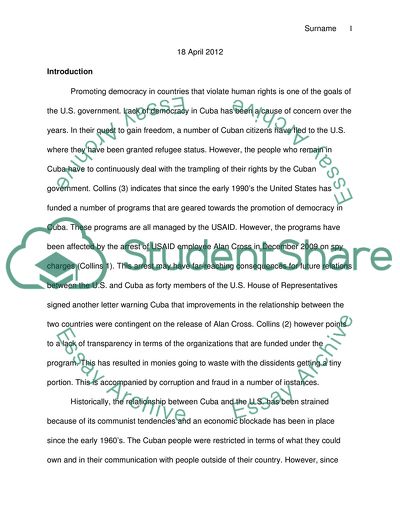Cite this document
(Promoting Democracy in Cuba Research Paper Example | Topics and Well Written Essays - 3000 words, n.d.)
Promoting Democracy in Cuba Research Paper Example | Topics and Well Written Essays - 3000 words. Retrieved from https://studentshare.org/politics/1772238-promoting-democracy-in-cuba
Promoting Democracy in Cuba Research Paper Example | Topics and Well Written Essays - 3000 words. Retrieved from https://studentshare.org/politics/1772238-promoting-democracy-in-cuba
(Promoting Democracy in Cuba Research Paper Example | Topics and Well Written Essays - 3000 Words)
Promoting Democracy in Cuba Research Paper Example | Topics and Well Written Essays - 3000 Words. https://studentshare.org/politics/1772238-promoting-democracy-in-cuba.
Promoting Democracy in Cuba Research Paper Example | Topics and Well Written Essays - 3000 Words. https://studentshare.org/politics/1772238-promoting-democracy-in-cuba.
“Promoting Democracy in Cuba Research Paper Example | Topics and Well Written Essays - 3000 Words”, n.d. https://studentshare.org/politics/1772238-promoting-democracy-in-cuba.


